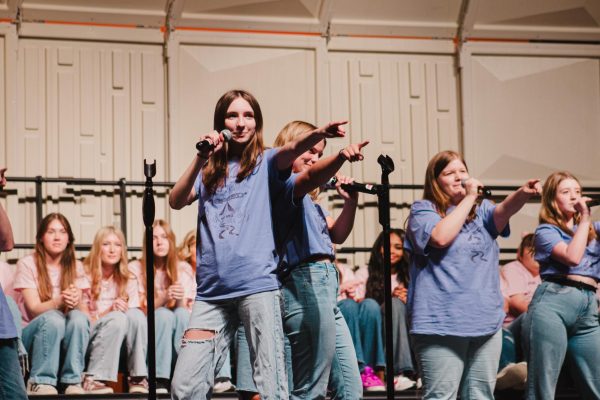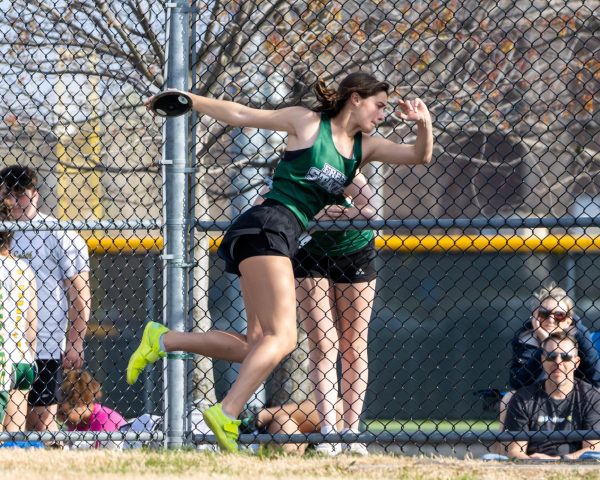My Week in the Wilderness
Six months ago, I received a small forest of college mail, all advertising how the Princeton Review ranks their college as a top liberal arts school or how their 200-plus clubs make them have a diverse student body. Now, this isn’t atypical these days, but beneath all the generic letters with the photocopied dean’s signature or the sheets claiming “we want you!” was a small, aqua-colored brochure from a place I had never heard from: College of the Atlantic.However, they weren’t advertising their sport’s teams or a new student center. Instead, they were encouraging me to apply to their high school summer field institute.
Called Rivers: A Wilderness Odyssey, a two week program that involved camping and canoeing along the Allagash waterway in Maine, taught participants about conservation biology, environmental policy, and human psychology. Intrigued by the sound of an adventure, (and college credit if I passed the program), I decided to fill out a lengthy application full of my accolades and dreams that I hoped would land me a spot.
I was on a bus going to a band competition when plink! the email came. Oh my god, I got accepted! In a short few months, I’d be out in the wilderness, near the ocean, with moose and bald eagles. This all sounded like paradise compared to the sleet we were facing on that April 18.
However, I started having doubts when I received a packing list and a novel that corresponded with the course. From the looks of the list, you would have thought I was packing for the apocalypse. With words like “indestructible,” “Gore-tex,” and “wool-mesh-nylons blend” in the description, the clothing and gear needed for the trip seemed vast…and expensive. The book, titled River of Doubt by Candace Millard, talked about Theodore Roosevelt’s last expedition into the Amazon rainforest where he faced monsoons, cannibals, and a near amputation of his leg. The combination of these overwhelming aspects me made me question the program more and more.
However, in late July, I packed my sleeping bag and smart wool socks into a duffel bag the size of me and took three planes and a shuttle bus to the camp. Once there, I interacted with nine other students, mostly from the New England states, (Kansas seemed like another country to these folks), all of whom had similar hopes and dreams to me, albeit a little more experience.
First of all, I had never gone canoeing. I had done some leisurely kayaking before, but Kansas water and Maine water are not comparable.
Secondly, I hadn’t done much camping, nonetheless two weeks worth. Essentially, I was going into the program as a newbie, fresh bait, an easy target, whereas some of my camp mates taught classes in the woods. One was even stranded for 48 hours with only a handful of trail mix and a cord.
The first day involved planning, packing, and preparing ourselves. From food to fuel, everything had to fit into two vans, along with ourselves and any personal gear we desired. We would travel five hours to the drop off site and would spend nine days on the river, so if something essential was forgotten, we were in a bad situation.
Needless to say, the car ride there (and home) were the scariest things we faced the entire trip. Going from civilization to dirt roads full of chugging logger trucks where being crushed by a giant log is always a fear on your mind, is a surreal feeling, . Thankfully, we arrived at the drop off with no problems and took on our adventure with full speed.
The first night is the most vivid, mainly because we all felt so alone, but at peace. So far from civilization, no technology for hundreds of miles, no way out but up the river. I think that night is also so clear because we realized we packed 16 cans of beans…but we only needed six. The dread of having to carry the extra weight was apparent in everyone’s faces.
The next eight days all mushed together, with everyone relying on the elements for meal times and lessons. We got up a little after the sun rose and went to bed when the last coals of the campfire burned out. We traveled 77 miles through sun, wind and lots of rain. In fact, throughout the duration of the trip we were wet more often than we were dry. The temperature even got down to the lower 30s one night.
We did more than paddling and pitching tents, though. After all, this was for college credit. Readings, journaling, initiating protocols on amphibians and observing our surroundings were all packed into the day as well, leaving everyone with questions and our three professors full of answers and more assignments. With so much to do, the cold, hard ground seemed oh so dreamy to fall asleep on every night.
The last day on the river was bittersweet. We all started to paddle slower and slower as we got closer to Allagash Village. Whether that was because we were sad to leave the river or we were just tired, I’m not quite sure. After all, everyone did sleep on the car ride home except me. They missed seeing the Canadian border as well as all the places that had electricity, running water and flushable toilets. Everything just seemed so foreign and out-of-place.
We got back to the college and had to create a presentation about our trip for the teachers and parents. Still exhausted from the trip and adjusting to being back in civilization, the workday seemed endless and mind boggling.
The next day, we sang songs and showed our pictures, and then, poof! Off we all went, traveling near and far back to our cozy abodes. And yes, it was pouring on this day as well. It was only fitting.
Many people would think of these two weeks as a living nightmare. First of all, school in the summer? And on top of that, spending time in the middle of nowhere with people you could potentially hate, with no technology or independence? Why would anyone want to do such a thing?
I’ll tell you why. Because waking up super early yields rewards, like getting 20 feet away from a moose or seeing the sun rise. Because I met some amazing people who were all so different yet just as interested in the environment as me, and I can call them family now as I Facebook chat one and send a letter to another. Because going to camp helped me learn more about the sciences I want to pursue, as well as the kind of person I want myself to be.
So according to some, I might have wasted my last two weeks of summer because I wasn’t constantly tanning, tweeting or talking with my best friends. But you know what? Sometimes, summer should be spent finding out those great experiences that you would have never tried if you had not paddled on.
Your donation will support the student journalists of Lawrence Free State High School. Your contribution will allow us to purchase equipment and cover our annual website hosting costs.







